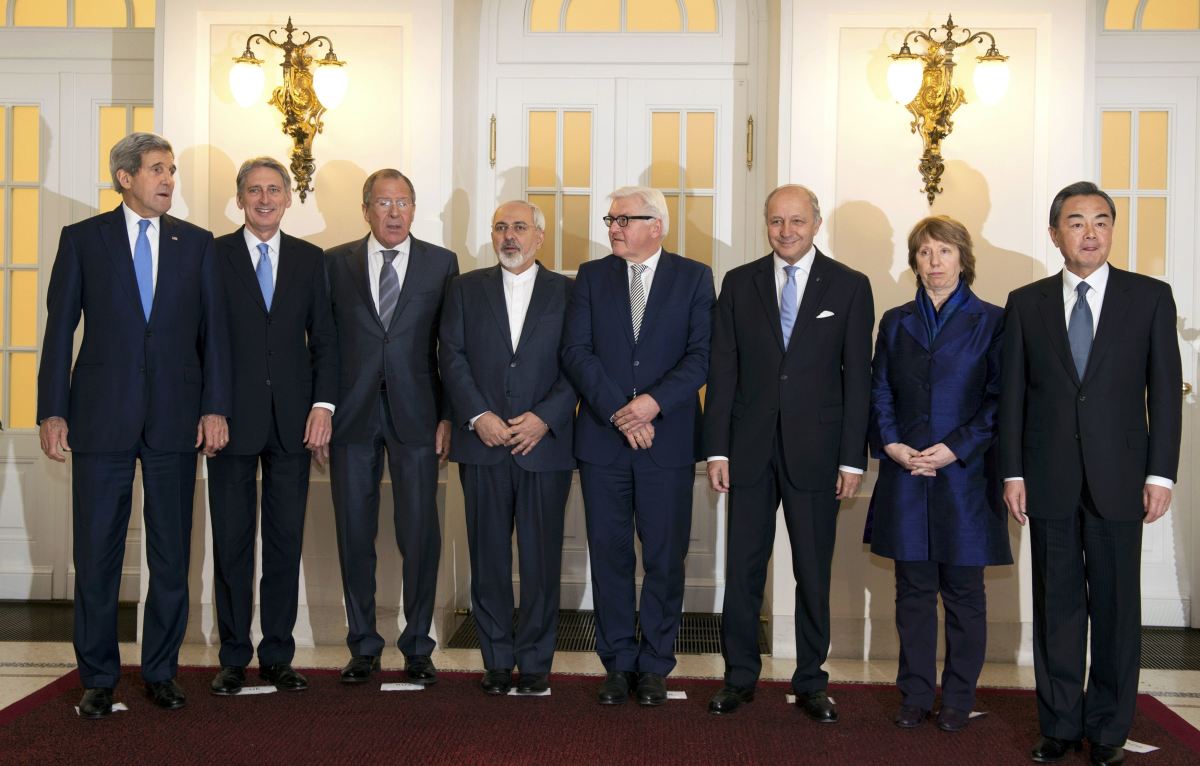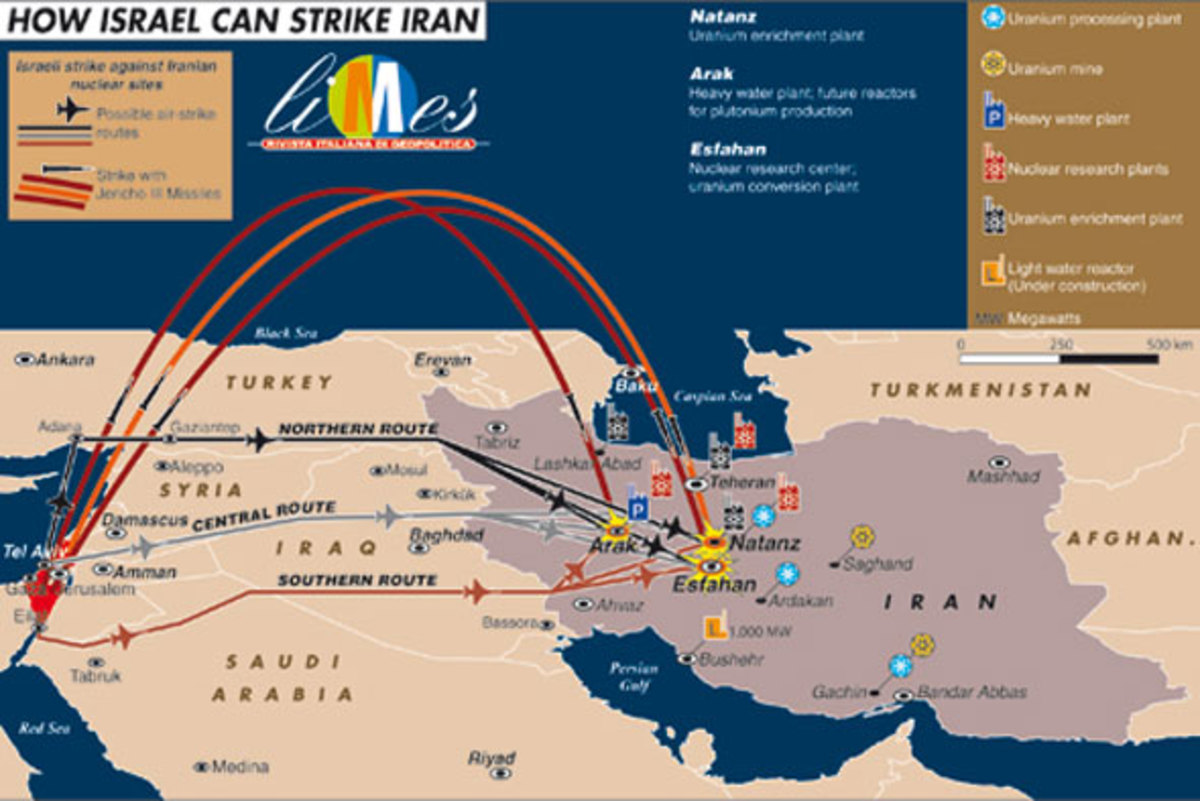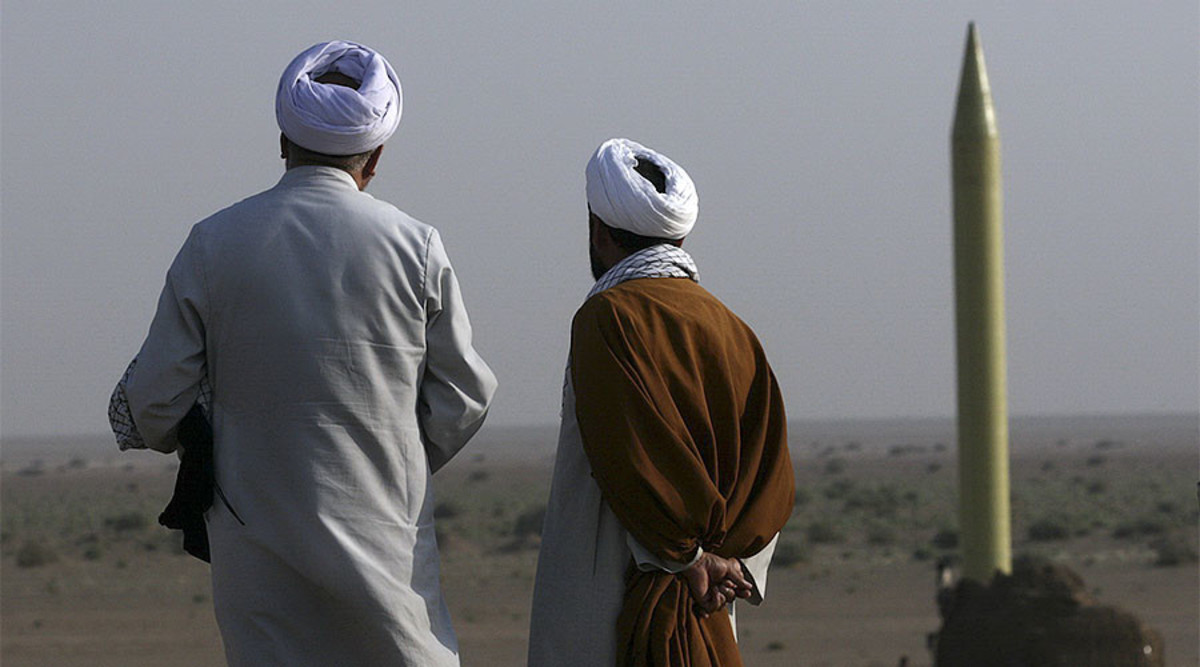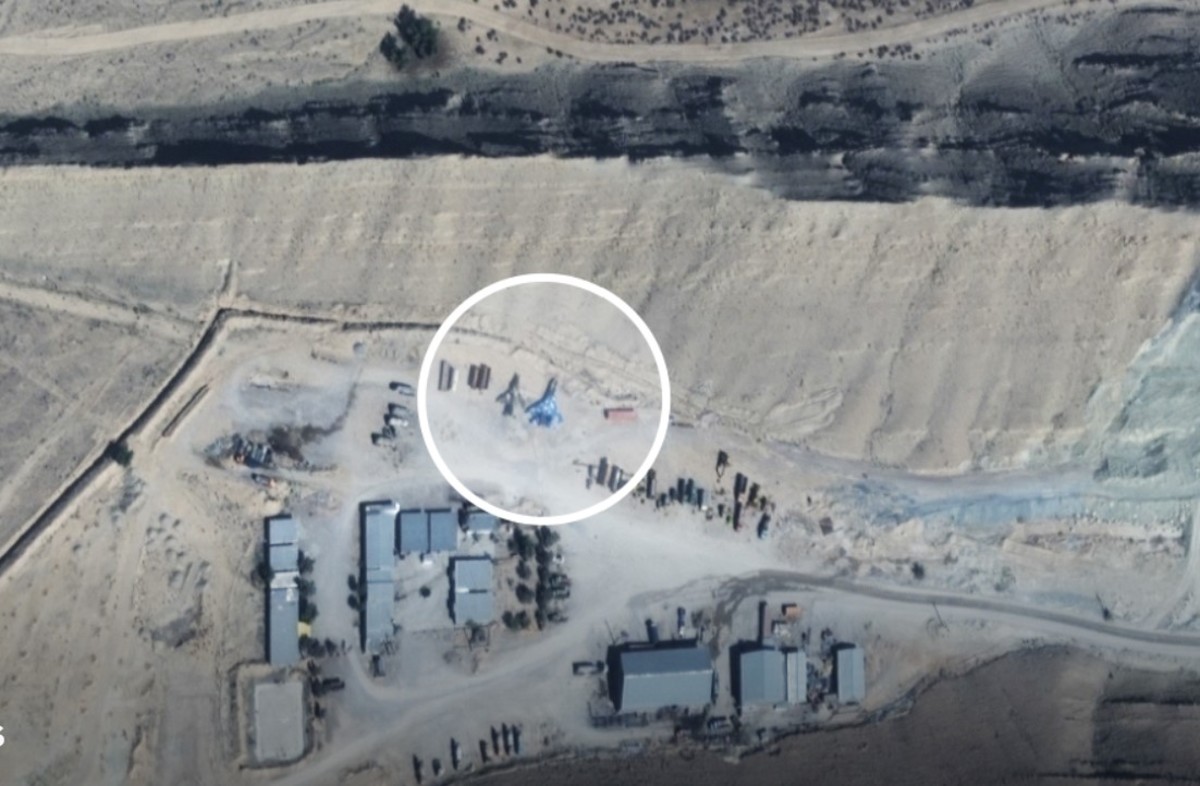Why there will not be a war with Iran
Background - No Love Lost
Lets not forget that the curent situation stems from the not too distant past when Western Interests, reluctant to give up their access to Iranian Oil and anxious to keep the Straights of Hormuz open propped up the corrupt and despotic regime of the Shah of Iran. The Iranian revolution was a popular uprising which the west could not accept. The new regime for their part had good reason to hate and distrust the West.
The Shah left Iran in February 1979 and within 20 months the revolutionary government found itself immersed in one of the most horrific conflicts in recent time. The Iran Iraq war raged from September 1980 until August 1988. Saddam Hussein's Iraq was the aggressor nation. Iraq saw an opportunity to seize power in an Iran weakened by it's internal situation. Spare parts for US military equipment originally supplied to the Shah were difficult to obtain rendering much of Irans airforce and mechanised units useless. As the war dragged on the Geneva convention was torn up and thrown out the window. Large scale chemical warfare was employed by Iraq in an attempt to overcome Iranian strength of numbers. The Iraqi dictator enjoyed substantial western support. Apparently, the enemy of your enemy is your friend. Dirty tricks continued on both sides with the US supplying arms to Iranian opposition groups via Israel in the Iran-Contra affair. The Iranians for their part supported hostage taking and terrorist attacks against The USA, Israel and European nations.
Since those times there have been countless grievances on both sides. Hezbollah is a Shia militant group which first appeared in 1982 when Israel invaded Lebanon. Hezbollah has recieved financial and logistical support from Iran and has been accused of numerous attacks on Western interests from 1982 until the present day. Hezbollah has denied involvement and became a part of the Lebanese goverment in 2011. It is also suspected of being closely linked to Islamic Jihad which has performed terrorist acts.
There has been substantial evidence of Iranian support for insurgencies in Iraq and Afghanistan including the supply of weapons and bomb parts.
Does Iran have the right to build nuclear infrastructure?
Barriers to Proliferation
The five possible barriers to Iranian proliferation as I see it are as follows.
Espionage: There have been at least four successful assasinations of Iranian nuclear scientists inside Iran. Typically these attacks have been shootings or bomb attacks when the victims have been travelling in a car. Israel has a strong track record in assasinations particularly in Palestine and most are guessing that the Israeli secret service Mossad is behind the "wet work". If there is an attack or surgical strike being planned against Irans nuclear programme it would be vital for the mission to take out as much of the infrastructure as possible. Therefore a massive intelligence gathering operation must be in place. There is little doubt that the assasination of key scientists must be slowing the Iranian Nuclear programme it is unlikely that espionage and assasination will provide a lasting solution.
Surgical Strike: Israel and the US have performed surgical strikes successfully in the past. However technology has advanced and many of the nuclear sites are deep inside Iranian territory. The most likely scenario I can see with a surgical strike would be initiated from the US using stealth aircraft or tomahawk cruise missiles. I believe a surgical strike is unlikely due to the risks that the mission may fail to take out the targets and the risk that a large scale Mid Eastern War may result. The shock and awe attacks on Iraq were well telegraphed and took months to build up for. Would an attack just encompass Nuclear sites or would it be expanded to cover military command and control targets or Public infrastructure? On the subject of war it is highly unlikeley that the US in an election year and after 11 years of conflict in Afghanistan would have any appetite for a war with Iran. If the US is not on board there would be considerable diplomatic pressure on the Israelis not to take action.
M.A.D: Not so much a barrier to proliferation but certainly a barrier to conflict. The concept of mutually assured destruction arose in the cold war and is a very strong consideration with Iran. Iran is known to have missile delivery systems capable of reaching Israel whilst Israel has had a nuclear weapons for over 30 years. Even if they do not yet possess a nuclear weapon, Iran still has the missile capability to deliver chemical weapons and presumably a radiological bomb (dirty bomb) to Israel. The prospect of Nuclear annihilation for Iran and Chemical/Radioactive attack on Israel should ensure that cooler heads prevail. US missile defense capabilities have advanced since the Scud Missile attacks of the first Gulf War. Are they reliable enough to protect Israel?
Sanctions: Trade sanctions have been and will continue to be applied against Iran. They are a legitimate method of forcing a country to change policy without going to war. The latest escalation of sanctions has seen Iranian banks barred from the SWIFT interbank payments system. This is a significant threat for the Iranian economy as there will be no facility for International electronic payments. Presumably there will be a dramatic increase in shipments of physical cash and gold across Iran's borders and the corruption that goes with the movement of physical assets.
The Arab Spring: Political unreast in the middle east since early 2011 has led to revolution in Tunisia and Egypt. A civil war in Libya saw Colonel Gadaffi summarily executed and Syria has been brought to the brink of civil war. There was civil unrest in a number of countries. Iran had seen an uprising following the 2009 presidential elections which were ruthlessly put down. Further protests were made in early 2011 when the Arab Spring was in full force. It is possible that a new revolution could sweep the current Iranian leadership from power.
Conclusion
It appears unlikely that a full scale war with Iran is about to happen. The US is war weary after years of commitment to Iraq and Afghanistan. Admitedly there have been many wars which saved governments (The Falklands War comes to mind).
The US economy is showing initial signs of economic recovery but its key European allies are doing it tough with a capital T. Do they have the financial capacity to support further war commitments?
I think it far more likely that the pressure will be raised on Iran through espionage & covert operations, by ramping up trade sanctions, by aiding and encouraging internal opposition within Iran. Syria has been one of Iran's staunchest allies and is now suffering a significant rebellion bordering on civil war. Western interests will be hoping that the Ahmadinejad government is overthrown from within.








